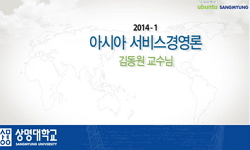탈근대론은 지난 30여 년간 한국 인문학의 논제를 전반적으로 개조하고 견인한 촉매제였으며, 그 자장 속에서 한국 근대문학 연구는 식민지/식민지 문학을 대상으로 삼아 다양한 성과물을 ...
http://chineseinput.net/에서 pinyin(병음)방식으로 중국어를 변환할 수 있습니다.
변환된 중국어를 복사하여 사용하시면 됩니다.
- 中文 을 입력하시려면 zhongwen을 입력하시고 space를누르시면됩니다.
- 北京 을 입력하시려면 beijing을 입력하시고 space를 누르시면 됩니다.
https://www.riss.kr/link?id=A107984857
- 저자
- 발행기관
- 학술지명
- 권호사항
-
발행연도
2021
-
작성언어
-
-
주제어
근대성 ; 아시아 ; 뉴아카데미즘 ; 소비자 정체성 ; 재영토화 ; 탈영토화 ; Modernity ; Asia ; New academyism ; Consumer identity ; Reterritorialization / Deterritorialization
-
등재정보
KCI등재
-
자료형태
학술저널
- 발행기관 URL
-
수록면
471-494(24쪽)
- 제공처
- 소장기관
-
0
상세조회 -
0
다운로드
부가정보
국문 초록 (Abstract)
탈근대론은 지난 30여 년간 한국 인문학의 논제를 전반적으로 개조하고 견인한 촉매제였으며, 그 자장 속에서 한국 근대문학 연구는 식민지/식민지 문학을 대상으로 삼아 다양한 성과물을 산출하였다. 『아시아 트러블』은 포스트콜로니얼 연구와 근대성 연구가 합류ㆍ종합된 하나의 경지를 보여주는 저서라 할 수 있다. 이 책은 ‘식민지’조선이 근대 ‘세계’와 접속하며 학습ㆍ수행한 ‘탈중심적 상상력’이 식민지 말에도 발현되고 있었음을 문학과 담론 분석을 통해 논증하였다. 저자는 ‘자본의 운동’과 ‘사회주의’라는 두 벡터를 1920∼30년대 텍스트 속에서 추출하여, 식민지 말 문학에서 발견되는 탈중심적 상상력과 연결한다. 이를 통해, 대동아전쟁기의 아시아는 제국 일본의 영토화 된 질서가 지배하는 고정된 공간이 아니라 복수의 지정학적 전망이 교차되며 흔들리는 공간으로, 식민지인은 제국적 주체를 욕망하며 ‘국민’으로 순치되는 존재가 아니라 통치의 기획에 교란을 일으키는 존재로서 부상시키고자 하였다. 이러한 저자의 시각은 식민지 문학자들의 ‘상상력’이 가진 ‘가능성’을 이끌어내면서도, 그 역능을 주권적 존재에 의탁하지 않으려는 기획이라 하겠다. 국민과 민족이라는 주체의 위치에서 벗어 나면서, 저자는 ‘일상생활에서의 소비실천’을 통한 제국 체제로부터의 이탈에 주목한다. 그 결과 『아시아 트러블』에서 다루어지는 식민지인은 소비를 매개로 해서만 가까스로 재현되는 존재가 된다. 이와 같은 논의는 국가, 민족과 같은 집단적 정체성을 더 이상 고수하기 어렵게 된 상황에서 여전히 정치적 주체로 존재할 가능성에 대한 모색이라는 문제의식을 포함하는데, 그 가능성과 한계의 획정은 ‘지금, 여기’의 근대 문학 연구 앞에 놓인 과제라 하겠다.
다국어 초록 (Multilingual Abstract)
For the past 30 years, postmodernism has been a catalyst for reforming and driving the theses of Korean humanities as a whole and under the effect of it research on modern Korean literature, subject to colonial rule and literature, have produced vario...
For the past 30 years, postmodernism has been a catalyst for reforming and driving the theses of Korean humanities as a whole and under the effect of it research on modern Korean literature, subject to colonial rule and literature, have produced various outcomes. ‘Asian Trouble’ reached a certain state where research on post-colonialism and modernity are merged and integrated. The book is a written work that demonstrates ‘decentralized imagination’, which ‘colonial’ Joseon learned and practiced while connecting with the modern ‘world’, was being presented even in the late colonial period. The author extracts two vectors, ‘movement of capital’ and ‘socialism’ from the texts of the 1920s and 1930s, and connects them with the decentralized imagination found in late colonial literature. Through this, the author aimed to redefine the values of the Asia during the Great East Asian War from a fixed space dominated by the territorialized order of Imperial Japan to a chaotic space where multiple geopolitical perspectives intersect and of colonists from beings submissive as ‘citizens’ who desire to be subjects of the empire to beings who cause disturbance to the plans for the ruling. The author’s perspective seeks to maximize the ‘possibility’ of the ‘imagination’ of colonial writers while not relying on a sovereign existence for its possibility. Escaping from the position of the subject being the people and nation, the author pays attention to the departure from the imperial system through “consumption practice in daily life”. As a result, the colonists referred to in ‘Asian Trouble’ are reproduced only through consumption used as a medium. Such discussions include the problematic awareness of the possibility that colonists still existed as political subjects in a situation where it was no longer possible to adhere to the collective identity of the nation or their people.
동일학술지(권/호) 다른 논문
-
표류하는 여성 괴물 2 : 『태원지』 속 여성 괴물의 형상과 의미
- 민족문학사학회·민족문학사연구소
- 김선현 ( Kim Seon-hyeon )
- 2021
- KCI등재
-
- 민족문학사학회·민족문학사연구소
- 서혜은 ( Seo Hye-eun )
- 2021
- KCI등재
-
조선후기 젠더의식의 복합성에 대하여 : 『삼의당고(三宜堂稿)』를 중심으로
- 민족문학사학회·민족문학사연구소
- 성민경 ( Sung Min-kyung )
- 2021
- KCI등재
-
도류 취편의 전통과 술가의 분리 : 『진벌휘고속편』의 도류 · 술사 편제방식과 의미
- 민족문학사학회·민족문학사연구소
- 양승목 ( Yang Seung-mok )
- 2021
- KCI등재





 KISS
KISS







